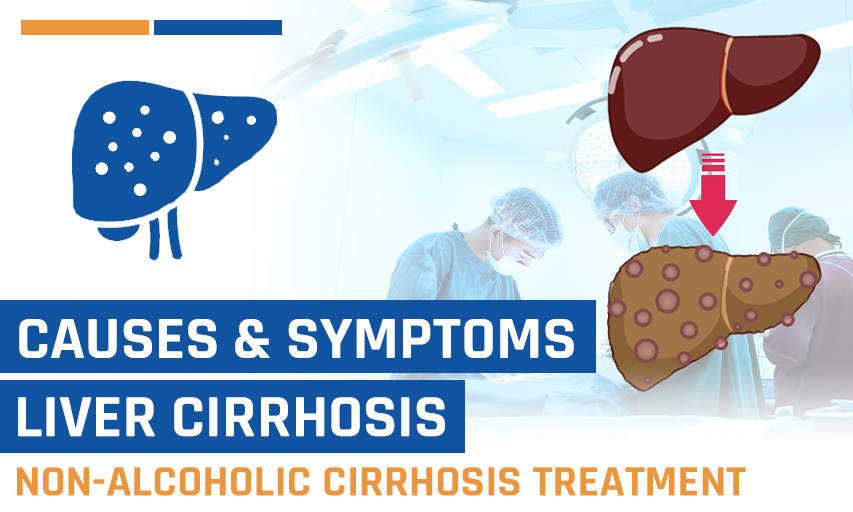5 Signs of Infertility in Men: A Guide for Couples Trying to Conceive
Are you and your partner trying to conceive but struggling to get pregnant? If so, male infertility could be the reason. According to studies, rising pollution levels, chronic stress, poor diet, lack of exercise, and unhealthy lifestyle habits are all linked to the rise of male factor infertility.
Infertility affects millions of couples worldwide, and oftentimes, the issue lies with the male partner. Recognising the signs of infertility in men is the first step towards medical support and fertility treatment options. Fertility experts across India are helping couples understand the causes and signs of infertility in men, guiding them on their path to parenthood.
Fertility problems male are often caused by factors such as illnesses, injuries, chronic health conditions, or lifestyle choices that result in low sperm production, abnormal sperm function, or blockages that prevent sperm delivery. Fortunately, a wide range of treatments are available in India to address male infertility. In particular, IVF is the most common male infertility treatment method, with costs ranging from $2,000 to $5,000 per cycle, which is way more affordable than in African countries, as well as in countries like the US and the UK.
What are the Causes of Male Infertility?
Male infertility can arise from a combination of biological and environmental factors, commonly affecting semen ejection, sperm motility, morphology, and count. Understanding these underlying causes is crucial for identifying the signs of infertility in men. The following are the possible causes of male infertility and hence should be avoided:
■ Genetic Disorders: Conditions such as Klinefelter syndrome, myotonic dystrophy, and Y-chromosome microdeletions can interfere with normal sperm production and function.
■ Varicocele: This occurs when the veins in the scrotum become enlarged and dilated, leading to overheating of the testes. This can negatively impact sperm shape and reduce sperm count.
■ Oligospermia: Oligospermia refers to a low sperm count or poor-quality sperm, often with reduced motility, which makes it difficult for the sperm to reach and fertilise the egg.
■ Abnormally Shaped Sperm: Sperm with irregular shapes may not swim effectively or survive long enough to fertilise an egg.
■ Serious Illness and Cancer Treatments: Treatments such as chemotherapy, radiation, or surgery involving the testes can severely impair sperm production and fertility.
■ Unhealthy Lifestyle Habits: Heavy alcohol consumption, smoking, use of illegal drugs, and anabolic steroid abuse can reduce sperm production and damage reproductive health.
What are the 5 warning Signs of Infertility in Men?
Infertility in men often goes unnoticed until a couple experiences difficulty conceiving. However, there are several physical and hormonal symptoms that indicate the problem of infertility. Recognising these early warning signs can help men seek prompt treatment to prevent complications. Here are some of the warning signs of infertility in men that require immediate evaluation and treatment to stop them from escalating further:
■ Loss of hair and low hair growth
Testosterone is the primary male sex hormone that is closely linked to hair growth in men and is responsible for male facial hair growth during puberty. It is also a factor that maintains normal hair growth. This is why if you start noticing changes in hair growth, it can be a sign of infertility in men. Sudden hair loss and hair thinning are two of the ordinary male infertility issues that are proven to be related to sperm volume. Men having moderate to severe hair loss are reported to have 60% lower sperm volume, demonstrating the correlation between hair loss and low sperm count and, thus, infertility.
■ Decreased Libido
Hormones are associated with sexual behaviours and, thus, reproductive problems. Men having higher levels of testosterone have hormones that lead to a higher sex drive, which is equal to higher libidos. Such an increase is a sign of a fertile man with impressive sperm count and motility. However, once you notice a decline in sex drive, it could indicate a drop in testosterone levels, and that can ultimately reveal a sign of infertility in men.
■ Weight loss or gain
Maintaining a normal or healthy weight is very good for the human body. However, weight gain or loss can lead to infertility issues, hormonal imbalances, and erectile dysfunction, which may manifest as various signs of infertility in men. Weight gain or loss can cause or develop unhealthy sperm, which could mean male infertility.
■ Erections & Ejaculation problems
Difficulty achieving or maintaining an erection, as well as issues with ejaculation, can signal an underlying reproductive problem. These symptoms are caused by hormonal imbalances or low testosterone levels. In some cases, premature ejaculation, which is when ejaculation occurs shortly after sexual activity begins, can also impact fertility and require medical intervention.
■ Testicular pain, Lumps, or Swelling
Pain, swelling, or lumps in the testicles can indicate a condition called varicocele, which involves enlarged veins in the scrotum. Varicoceles affect approximately 40% of men diagnosed with infertility and most commonly occur on the left side. Although treatable, this condition can impair sperm production and function, making early diagnosis important.
When Should You See A Doctor for Male Infertility?
Getting evaluated for infertility just after detecting the signs of infertility in men is a must. You should consult a fertility specialist and discuss plans for fertility treatment for men if they have not participated in a successful pregnancy after 12 months of timed and unprotected intercourse. If they are infertile and meet the following criteria, they should be tested sooner:
- Erection or ejaculation problems or other problems with sexual function
- Low sexual drive
- Pain, discomfort, a lump, or swelling in the testicular area.
- A history of testicular, prostate, or sexual problems.
- A partner who is over 35 years old may also be affected.
What are the Options for Male Fertility Treatment in India?
There are a number of effective male fertility treatment options available in India. The fertility treatment for men in India is supported by advanced medical technology and experienced specialists. Depending on the underlying cause of infertility, treatment options include lifestyle changes, medication, surgical procedures, or assisted reproductive technologies. Here are the most commonly recommended male fertility treatments available in India:
1. Lifestyle Modifications
For many men, simple changes in lifestyle can improve their chances of fertility. These include quitting smoking and alcohol, maintaining a healthy weight through diet and exercise, reducing stress through meditation or counselling, and avoiding exposure to environmental toxins and heat.
2. Medication and Hormone Therapy
Before going for any invasive treatment method, doctors first prescribe medications or hormone treatments for the problems of low testosterone levels, hormonal imbalances and infections affecting the sperm production. Common drugs include clomiphene citrate, gonadotropins, and antibiotics, depending on the diagnosis and stage.
3. Surgery
Surgery is effective in cases where physical abnormalities and blockages start affecting fertility. The male infertility surgery options include varicocelectomy, a surgical procedure to treat varicoceles and vasovasostomy, the reversal of a vasectomy for men who want to regain fertility. Sperm retrieval procedures such as TESA, PESA, or MESA are also used when sperm cannot be ejaculated naturally.
4. Assisted Reproductive Technology
India is a hub for ART procedures, which are often more affordable here than in Western countries. Common options include:
■ Intrauterine Insemination: In an IUI procedure, sperm is first washed and then directly inserted into the uterus during ovulation.
■ In Vitro Fertilisation: If your question was something along the lines of ‘Can IVF treat male infertility?’, then the answer to that is yes. During an IVF treatment, the sperm and egg are fertilised outside the body, and the embryo is implanted in the uterus.
■ Intracytoplasmic Sperm Injection (ICSI): A single sperm is injected directly into an egg in an ICSI procedure. It is often combined with an IVF treatment procedure and is ideal for cases of low sperm count or motility.
■ Donor Sperm Programs: Donor sperm programs are used as a last resort in cases where sperm retrieval is not possible or when genetic conditions are present.
Why Get Male Infertility Treatment in India?
India has become one of the best countries for getting male infertility treatments due to its combination of medical expertise, advanced technology, affordability, and patient-centred treatments. Some of the reasons for the same include:
1. Highly Qualified Urology Specialists
India is home to internationally trained and experienced urologists, andrologists, and fertility experts who specialise in diagnosing and treating male infertility.
2. Advanced Diagnostic and Treatment Options
Fertility clinics in India offer advanced technologies such as ICSI, micro-TESE, sperm DNA fragmentation testing, and advanced sperm retrieval techniques.
3. Cost-Effective Fertility Treatments
Male infertility treatments in India are cost-effective and more affordable than in countries like the U.S., the UK, or parts of Europe, often costing 60–80% less without compromising on quality.
4. High Success Rates
Indian fertility centres report high success rates and excellent quality for procedures like IUI, IVF, and ICSI, which are comparable to global standards.
5. Minimal Wait Times
Unlike in some countries, where waiting lists for treatment can be long, Indian clinics typically offer faster scheduling and quicker access to fertility care.




















Be First To Comment
Leave a Comment